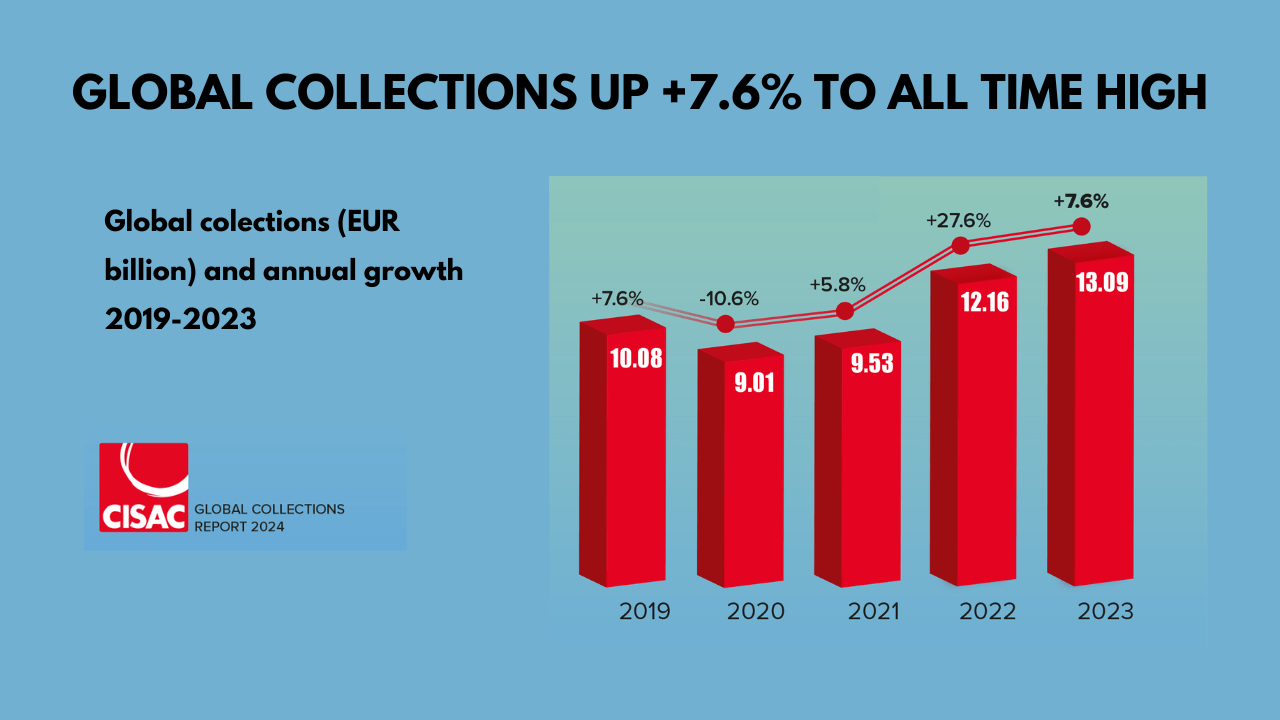The Indian Performing Right Society Limited (IPRS) has solidified its standing as the fourth-largest copyright society in the Asia-Pacific region, a milestone confirmed by the CISAC Global Collections Report 2024. This achievement not only highlights the rapid growth in India’s digital music space but also underscores IPRS’s role in driving fair compensation for music creators.
Despite impressive growth, challenges like low compliance and limited paid streaming subscriptions continue to impact the music industry’s full revenue potential in India. Here’s a look at how IPRS is leading the way, its impact on India’s music landscape, and the opportunities and obstacles that lie ahead.
What is IPRS and Why is It So Important for India’s Music Industry?
IPRS is India’s sole authorized copyright society under the Copyright Act of 1957, representing over 15,000 composers, lyricists, and music publishers. Its mission is to protect the rights of music creators by collecting royalties and ensuring they’re fairly compensated when their music is played, streamed, or performed publicly.
In 2023, IPRS’s total collections crossed INR 500 Crores, with digital revenues contributing a striking 74.2% of this total. This robust digital growth reflects a significant shift in India’s music consumption, where digital platforms are now essential to reaching audiences. However, issues with compliance and reliance on ad-supported streaming tiers limit revenue potential for artists and rights holders.
India’s Digital Music Surge and Revenue Challenges
India has seen rapid growth in digital music consumption, with millions of users streaming music daily. Over the last five years, digital revenue for IPRS has grown by an astounding 493.6%, highlighting the potential of India’s digital music market. Yet, while India is one of the largest music consumers worldwide, the number of paid subscriptions remains low, with most listeners opting for ad-supported services.
This reliance on free streaming reduces the revenue that flows back to artists. For sustainable growth, the industry needs a shift towards more paid subscriptions, which would bridge the revenue gap and support the livelihoods of music creators.
Low Compliance and the “Value Gap” in India’s Music Licensing
One of the most pressing issues in the Indian music industry is low compliance with licensing laws. According to the CISAC Global Collections Report 2024, many broadcasters, event venues, and digital platforms in India do not obtain the necessary licenses to use music, leading to lost revenue for creators. This issue is compounded by limited enforcement, which creates a “value gap” where music is widely consumed but artists receive little compensation.
To combat this, IPRS has been strengthening compliance efforts, promoting transparency, and educating stakeholders on licensing requirements. However, achieving fair compensation for artists requires cooperation from industry players and policymakers alike. Ensuring that music users adhere to licensing laws will lead to a more sustainable, equitable music ecosystem in India.
The Potential of Live Music in India
While digital music has been the main revenue driver, live music holds immense untapped potential. With a resurgence in public performances, concerts, and festivals in 2023, global collections from live events rose by 22%. India, with its rich cultural diversity and demand for live entertainment, is well-positioned to benefit from this trend.
However, many venues and event organizers in India remain unaware of or fail to comply with music licensing requirements, limiting revenue for artists in the live sector. Indian copyright law exempts music played at marriage-related events, but other live performances still require proper licensing to ensure fair payment for creators.
In response, IPRS is expanding its licensing network to cover more live performances and is actively educating organizers on the importance of compliance. By supporting the growth of the live music sector, Indian Performing Right Society Limited (IPRS) aims to diversify revenue streams for artists beyond digital platforms.
Perspectives from Industry Leaders
Javed Akhtar, Chairman of IPRS, remarked on IPRS’s position as one of the leading revenue-generating societies in Asia-Pacific, highlighting both the accomplishments and challenges facing India’s music industry. “Our standing as one of the top revenue-generating societies in the Asia-Pacific region truly reflects the incredible creativity and talent in India’s music industry. But we need stronger support from industry stakeholders and government to unlock the full potential of our music sector,” he stated.
Rakesh Nigam, CEO of IPRS, emphasized the need to tackle compliance issues and enhance revenue for creators. “While we are proud of our growth, low compliance continues to impact earnings for our creators. We’re committed to enforcing licensing agreements to ensure fair compensation, and we see huge potential in the live music sector as a way to complement our strong digital revenues.”
Additionally, CISAC Director General Gadi Oron praised the resilience of the global collective management system, noting that royalty collections for creators hit a record EUR 13.1 billion, a 7.6% increase from the previous year. This achievement showcases the strength of collective management, with IPRS setting a benchmark in the Asia-Pacific region.
The Way Forward: Collaboration for a Stronger Music Industry
For India’s music industry to thrive, stakeholders across the board—including industry players, digital platforms, and policymakers—must collaborate to strengthen the ecosystem. Here’s how IPRS and its partners can help create a more supportive environment for music creators:
- Raising Awareness and Compliance: By educating music users on licensing requirements and enforcing compliance, Indian Performing Right Society Limited (IPRS) aims to create a fairer and more transparent music ecosystem.
- Encouraging Digital Growth: With a push towards paid subscriptions, the industry can reduce the value gap and increase revenue for creators.
- Expanding the Live Music Sector: IPRS is focused on strengthening licensing efforts within the live music sector, helping artists tap into this promising revenue source.
Conclusion: IPRS’s Ongoing Commitment to Fair Compensation and Growth
IPRS’s position as the fourth-largest music society in the Asia-Pacific region is a testament to the organization’s dedication to supporting music creators in India. As the digital and live music landscapes continue to expand, IPRS remains committed to advocating for creators’ rights, ensuring they receive fair compensation, and addressing the obstacles that hinder revenue growth.
By fostering an environment of compliance and supporting the growth of paid digital subscriptions, IPRS is paving the way for India’s music industry to become a global force. With its robust licensing network and ongoing advocacy efforts, IPRS is well-equipped to lead the Indian music industry into a future where artists are not only recognized but also rewarded for their talent.
For additional resources on music industry updates, marketing and distribution, visit Deliver My Tune.






